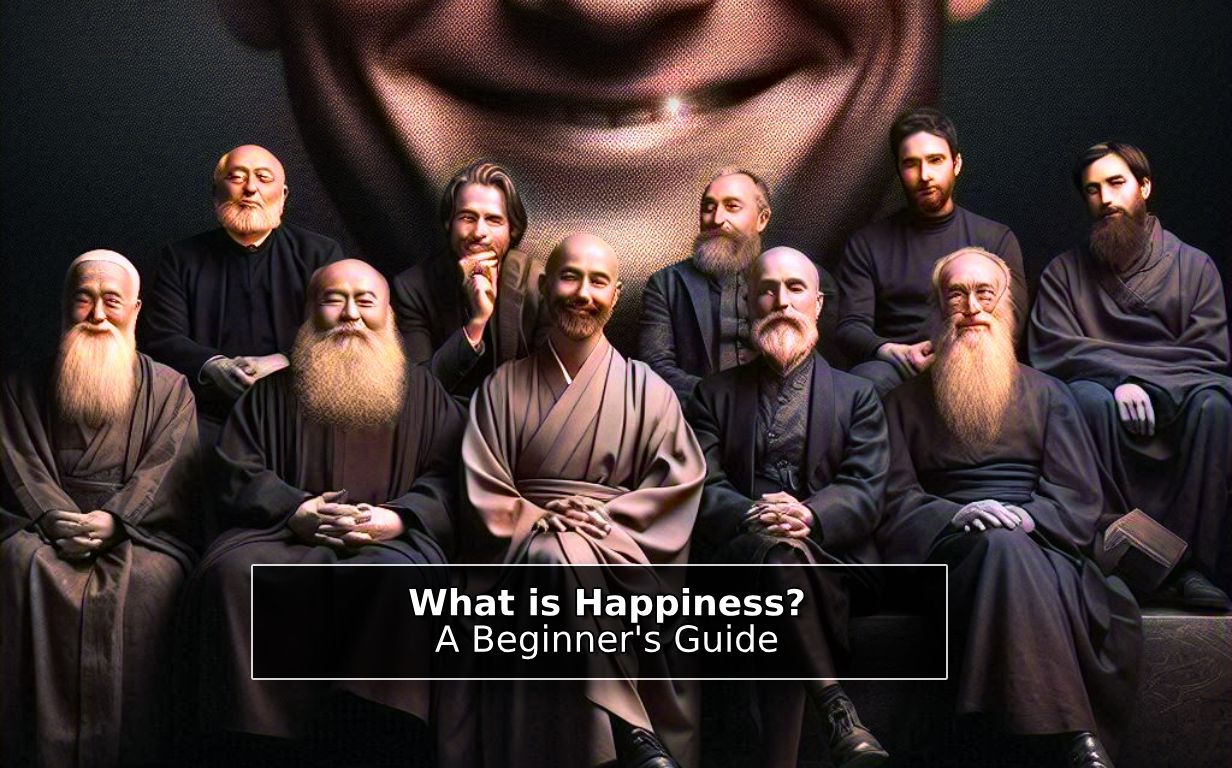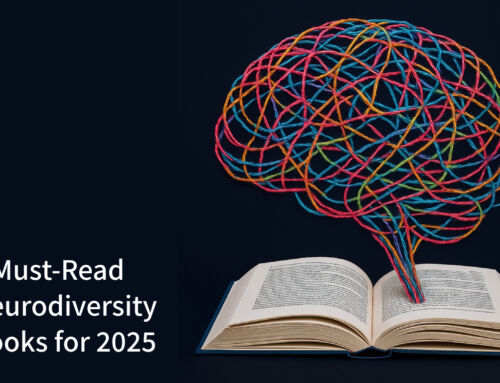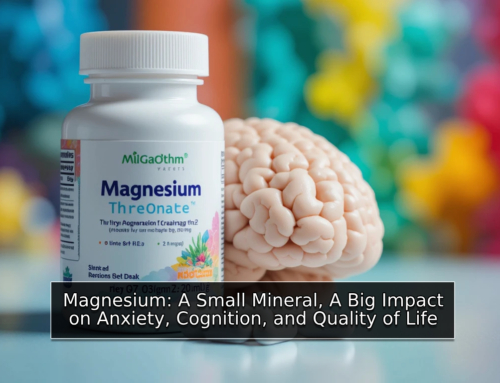What is Happiness? A Beginner's Guide
"Happiness is not a destination, it's a journey." – Saint Augustine
We all seek happiness, don't we? That feeling of completeness, satisfaction, and deep joy. But what exactly is happiness? Is it a goal to be achieved once and for all? Or is it an ongoing journey, a constant personal development?
Happiness According to Philosophers
Philosophers throughout history have pondered the mystery of happiness. Alain de Botton, for example, in his book and TV series "The School of Life," offers a fresh perspective. He argues that happiness doesn't depend on our life circumstances, but rather on how we choose to interpret them. Classical philosophers, like Epicurus, emphasized the importance of a simple life and rational pleasures. Epicurus distinguished between material pleasures and spiritual ones, such as friendship, learning, and enjoying nature. He believed that true happiness lies in the absence of suffering, both physical and mental, and that the fear of death is a significant source of suffering.
Nietzsche, on the other hand, sought happiness and meaning in life through overcoming challenges and striving to realize one's values. He argued that individuals must actively create the meaning of their lives and find happiness in overcoming difficulties and fulfilling their human potential.
Aristotle, another Greek philosopher, saw happiness as the ultimate goal of life. For Aristotle, happiness is achieved through realizing one's human potential, that is, by living a life of moral and social excellence. Plato, Aristotle's teacher, argued that true happiness lies in attaining knowledge of eternal ideas, rather than in the material world.
Happiness According to Eastern Philosophies
Happiness in Eastern philosophies is a broad and complex topic, as there are various philosophies and religions in the East, each with its unique approach. However, some common themes can be identified: happiness does not depend on external circumstances but on our mental state and our connection to ourselves and the world around us. By adopting principles such as self-awareness, compassion, and harmony with nature, we can live fuller and more meaningful lives.
- Harmony with nature: Many Eastern philosophies emphasize the importance of living in harmony with nature. This includes respect for all living beings, appreciation for the natural beauty, and understanding that humans are an integral part of the environment.
- Being present: Instead of focusing on the past or the future, Eastern philosophies encourage being present in the moment. This includes awareness of bodily sensations, thoughts, and emotions, and allows for a fuller life experience.
- Letting go of desires: Desires such as anger, jealousy, and greed are considered a source of suffering. Eastern philosophies encourage letting go of these desires and developing inner peace.
- Compassion and universal love: Many philosophies emphasize the importance of compassion for all living beings. Universal love is a way to connect with others and overcome differences.
- The middle way: A central concept in Buddhism, the middle way suggests that happiness is not found in extremes but in finding the right balance between pleasures and desires on the one hand, and renunciation and denial on the other.
Examples of Eastern philosophies:
- Buddhism: Buddhism focuses on liberation from suffering through understanding the nature of reality and developing compassion and universal love.
- Taoism: Taoism emphasizes the importance of living in harmony with nature and letting go of desires.
- Confucianism: Confucianism focuses on the importance of morality, society, and reverence for Heaven (天, tiān), meaning striving for perfect behavior and harmony with the cosmic order of nature.
- Hinduism: Hinduism offers a wide variety of paths to achieving happiness, including yoga, meditation, and worship.
And what does science say?
Scientific research suggests that happiness is a result of a combination of genetic, environmental, and behavioral factors. Our genes contribute about 50% of our happiness, our environment contributes about 10%, and the rest depends on our choices and actions.
Happiness as Self-Realization and Purpose
One of the most important components of happiness is self-realization and contributing to something greater than oneself. Finding our purpose, a sense of meaning, and connection to something beyond ourselves significantly contributes to feelings of happiness and fulfillment. When we act out of a sense of mission and contribute to our environment, we experience a sense of meaning, deep satisfaction, and commitment to life.
Happiness, Expectations, Values, and ACT and CBT
CBT and ACT offer diverse tools for achieving happiness. CBT focuses on changing negative thought and behavior patterns, emphasizing the importance of our thoughts and feelings on behavior. ACT takes a broader perspective, offering a more accepting approach that encourages us to acknowledge the existence of difficult thoughts and emotions, without the need to struggle with or avoid them. Instead, ACT emphasizes the importance of clarifying our values and committing to acting in accordance with them, even in the presence of difficulties, with self-compassion and non-judgment.
Happiness = Reality – Expectations
The quote "Happiness = Reality – Expectations" is an attempt to summarize a complex philosophical concept in a simple way. Despite its limitations, it can serve as a starting point for thinking about happiness and raising important questions about the relationship between our internal and external reality.
One way to get closer to happiness is to reduce our dependence on fulfilling our expectations. Instead of focusing on outcomes, which may be unpredictable, we can focus more on the process and our commitment to acting according to our values.
Ross Harris, a leading developer, therapist, and teacher in the field of ACT therapy, emphasizes that happiness is the result of creating a full and rich life, while striving to realize our values by committing to actions accordingly. When we act in accordance with our values, we experience a sense of meaning and satisfaction, even if the results are not always as we expected. This approach allows us to accept life as it is and focus on what truly matters to us.
Combining CBT and ACT can help us cope with emotional suffering more effectively. CBT can help us identify and balance unhelpful thoughts that cause us suffering, while ACT can help us accept the existence of difficult experiences and focus on meaningful actions.
The Journey to Happiness
The path to happiness is a personal journey, unique to each of us. There is no one-size-fits-all formula. But there are some things we can do to get closer to it:
- Practice mindfulness: Mindfulness practice helps us strengthen curiosity and non-judgmental awareness, allowing us to observe our thoughts and emotions without judgment.
- Self-compassion: Developing self-compassion allows us to treat ourselves with kindness and patience, even when we experience difficulties.
- Identifying values: Identifying our important values helps us understand what truly matters in our lives and focus on actions that align with those values.
- Commitment to action: Once we have identified our values, it is important to commit to actions that align with them, even if they are challenging.
- Cultivate social connections: Meaningful relationships with others are an important source of happiness.
- Do things you love: Focus on activities that bring you pleasure and satisfaction.
- Practice gratitude: Focus on the positive things in your life.
- Cultivate your spirituality: Connect with something greater than yourself, whether it be faith, purpose, or a higher goal.
- Seek help: If you are struggling on your own, don't be afraid to seek professional help.
Conclusion
Happiness is an ongoing journey, not a fixed destination. By combining tools from philosophy, psychology, and spirituality, we can approach a fuller and more meaningful life. Practicing mindfulness, developing self-compassion, identifying values, and committing to actions in accordance with them are all important components of this journey.
Note: This post is for informational purposes only and is not a substitute for professional advice.
Contact now
Ready to take the first step towards positive change? Contact me now for more information and to schedule an appointment. Whether you prefer in-person sessions in Tel Aviv or virtual meetings via Zoom, my integrated approach of Cognitive Behavioral Therapy (CBT) and Acceptance and Commitment Therapy (ACT) can help you break free from struggles and find greater fulfillment in life. I'll be sure to get back to you as soon as possible. Let's embark on this transformative journey together!
Call Whatsapp 052-2325511
Or fill out the following form.
Can ACT and CBT assist you or your loved ones?
Welcome to my therapy practice, where I offer a powerful combination of Cognitive Behavioral Therapy (CBT) and Acceptance and Commitment Therapy (ACT) techniques. CBT is a goal-oriented, short-term approach that's highly effective for anxiety, depression, low self-confidence, and more. ACT complements CBT, helping you navigate life's challenges and find fulfillment and authentic, happier life.
If you're struggling with anxiety, depression, low self-image, or facing setbacks, CBT combined with ACT may be the key to transforming your life. Break free from the struggle and take a step towards a happier, more fulfilling life.
Contact me today to schedule an appointment and embark on your journey of positive change. You don't have to face it alone; I'm here to support you every step of the way. Let's work together to create the life you deserve!





